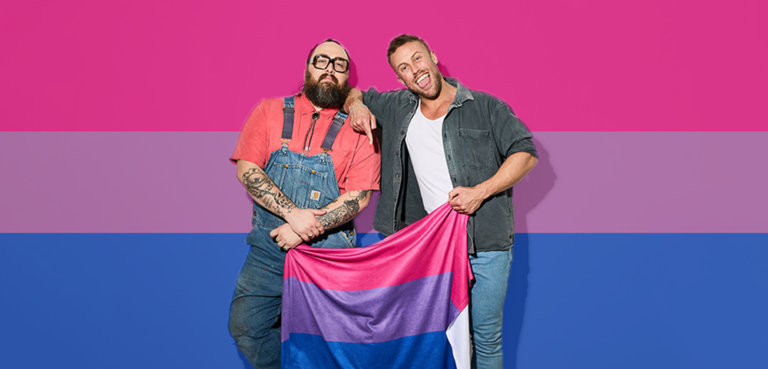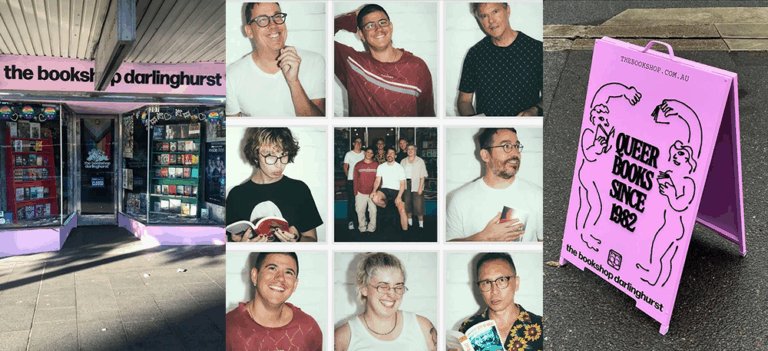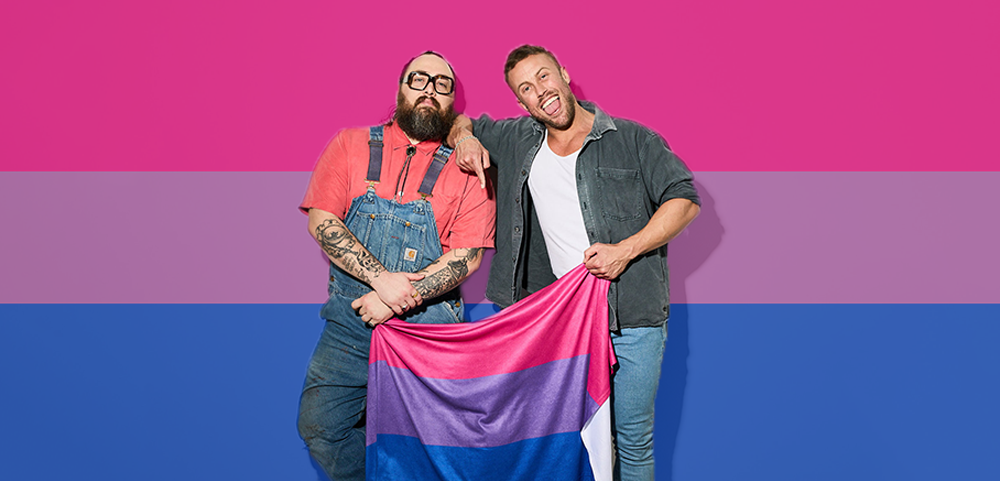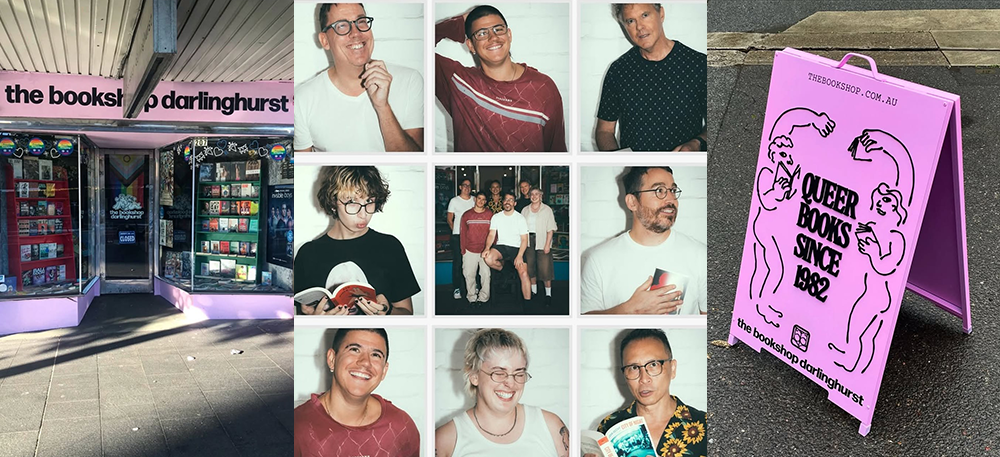
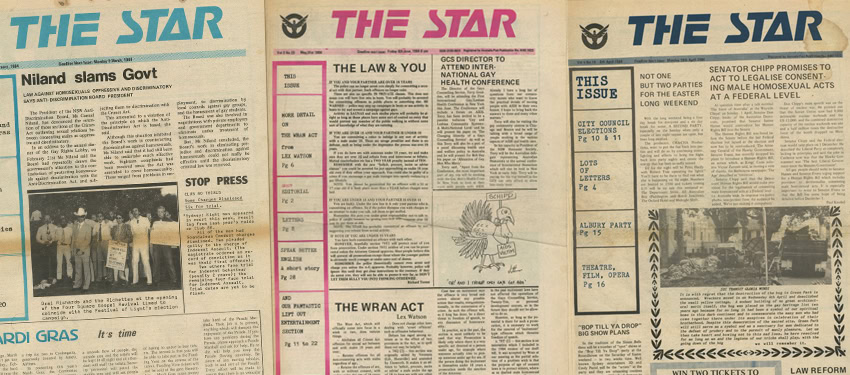
IN 1984, I was 12 years old and in year six. That year, special “father and son” and “mother and daughter” evenings were arranged at my Catholic primary school. In carefully gender-segregated rooms, we watched educational movies that explained everything we apparently needed to know about sex. As it turned out, sex was what you did when you grew up, married a woman and participated in some fairly clinical-looking procedures that resulted, eventually, in a child. The anatomical images of naked men were interesting but, to me, the acts required to create that baby didn’t hold much appeal.
That same year, unbeknownst to me (and certainly not mentioned in my year six classroom) a bunch of grown-ups were fighting for changes that would mean far more to my adult life than that sex education class.
In 1984, in the face of substantial opposition and after years of meetings, lobbying, demonstrations and sheer bloody-minded determination, activists in Sydney managed to have the law changed. No longer would it be illegal in NSW for consenting male adults to have sex with one another. Although the age of consent remained, for a time, fixed at the discriminatory ages of 18 for gay men and 16 for everyone else, adult men were at last free to go at it without fear of arrest.
Sex like that certainly wasn’t part of our school sex education classes, either in primary school or my all-boys Catholic high school. If it was mentioned it was probably condemned but, truthfully, I just don’t remember it being talked about at all.
Also absent was the history of activism that managed to change the law. Our history classes ignored one of the major social movements of the 20th century. A movement that immeasurably improved the lives of countless lesbians, gays, bi, trans* and queer people, as well as contributing to a fairer, more equitable society for all, was simply not mentioned.
As queers, we’ve all had to find out a great deal of information for ourselves. We emerged from school with substantial knowledge about what straight people do in bed and what straight people did in history, but our own sex lives and our own histories remained hidden away. That is why the work of groups including the Pride History Group in Sydney, the Australian Lesbian and Gay Archives in Melbourne and History Action Group in Brisbane is so important. It is through that work that we, as a community, can fight to preserve or uncover the histories that have impacted so directly on our own lives.
On November 28-29, the Pride History Group will mark the 30th anniversary of the 1984 decriminalisation of male homosexuality by holding the Homosexual Histories Conference 2014 at the University of Technology, Sydney. At that event, community activists (past and present) and some of Australia’s leading historians of sexuality will consider the processes by which, state-by-state and over several decades, Australian gay men at last saw their sex lives decriminalised.
Under the theme “Keep your laws off our bodies!”, we’ll also discuss other legislation that was (and is) used to oppress LGBTI people, and we’ll hear from historians researching a broad range of themes from Australia’s LGBTI history.
It now seems absurd that those laws were ever in place. Even in the context of the 1980s, they were ridiculous. By then, there was a booming gay scene in Sydney: pubs, nightclubs, saunas, gay shops and cafes, the Star Observer (then known as the The Sydney Star, then Sydney Star Observer). Acknowledging that the gay scene was no longer any kind of secret, politicians and religious leaders argued (falsely) that anti-gay laws were no longer enforced, but should nonetheless stay in place. HIV and AIDS gave some a new excuse for their bigotry, while others appeared simply uncomfortable. What self-respecting bloke wanted to stand up in parliament and argue in favour of buggery? Even some gay men argued that we should leave it all alone. Our lives are fine now, stop making a fuss.
But a fuss was made and I, for one, am grateful. Many had been forced by the law to live their lives ashamed and closeted. When arrests were made, countless families fell apart, careers were cut short, and lives were lost to suicide. Now, for most of us, just a part of history, the effects of these laws still linger in the lives and memories of those who survived them. As a community, we should never forget what that legislation did, or the people who got it changed.
One of those people was Lex Watson, an extraordinary, witty, highly-intelligent and often infuriating man who spent his life fighting for our community’s rights. As the president of the Pride History Group, Lex was still involved in that fight when he died earlier this year. Homosexual Histories Conference 2014 is dedicated to his life and memory.
We at Pride History Group hope to see you there.
Scott McKinnon is the Oral History Project Coordinator with the Pride History Group and a Postdoctoral Fellow at the University of Western Sydney.
—
Pride History Group’s Homosexual Histories Conference 2014, supported by the Australian Lesbian and Gay Archives and the Australian Centre for Public History, will be held at UTS on November 28-29. Details: www.pridehistorygroup.org.au
**This article was first published in the December edition of the Star Observer, which is available to read in digital flip-book format. To obtain a hard copy, click here to find out where you can grab one in Melbourne, Sydney, Brisbane, Adelaide, Canberra and select regional areas.

